Whitney Houston, Meryl Streep and Queen Latifah among inspiring women on New Jersey list
Gender equality at the polls came to New Jersey long before the 19th Amendment guaranteed it in the United States Constitution.
For three decades, from the midst of the American Revolution in 1776 to 1807, the state gave all single, propertied women the right to vote. Historians initially wrote off the “New Jersey exception” as a fluke — either accidental wording or an oversight. But it was both intentional and color blind.
“Our Constitution,” said one state legislator in 1800, “gives this right to maids Black or white.”
Calls to rescind the franchise came as soon as women began voting in discernible numbers. Reports of corruption and voter fraud — men donning dresses to vote multiple times — soon turned public opinion against New Jersey’s experiment in women’s suffrage.
A new law declared that restricting the vote to white men was necessary to the state’s “safety, quiet, good order and dignity.”
The fight to get women back into the voting booth never left New Jersey.
Elizabeth Cady Stanton, a towering figure in the women’s rights movement, helped pen the three-volume “History of Woman Suffrage” while living in Tenafly, and caused a stir in 1880 when she attempted to cast a vote there.
New Jersey native Alice Paul carried that same fiery spirit into the 20th century, organizing headline-grabbing parades and pickets in support of suffrage and later leading the charge for the still-unratified Equal Rights Amendment.
A century after reclaiming their power at the ballot box, women in New Jersey have continued to disrupt, inspire and make history. The USA TODAY Network is commemorating the anniversary of the 19th Amendment this August by recognizing 10 American women from each state, as well as the District of Columbia, whose contributions to their respective states made a lasting impact.
Are you registered to vote? Take the first step to making sure your vote counts.
The “Women of the Century” have a track record of outstanding achievement in areas such as arts and literature, business, civil rights, education, entertainment, law, media, nonprofits and philanthropy, politics, science and medicine or sports.
Not every notable woman with New Jersey ties could be included.
Toni Morrison, the Nobel laureate whose prose explored the Black experience, had a lengthy affiliation with Princeton University, but was a better fit for her home state of Ohio. Christine Todd Whitman, the state’s first female governor, and Carli Lloyd, the soccer player, didn’t quite make the list. Women who died before 1920 were also not considered since we wanted to focus on women who lived in the last 100 years.
The women profiled here embody the trailblazing independence of those first American women voters, who forged ahead despite obstacles and naysayers to leave their mark.
Who is your Woman of the Century? Did we miss a woman you think should be on our list? We’d like to hear from you.
Alice Paul
Lifelong activist for women’s rights
(1885-1977)
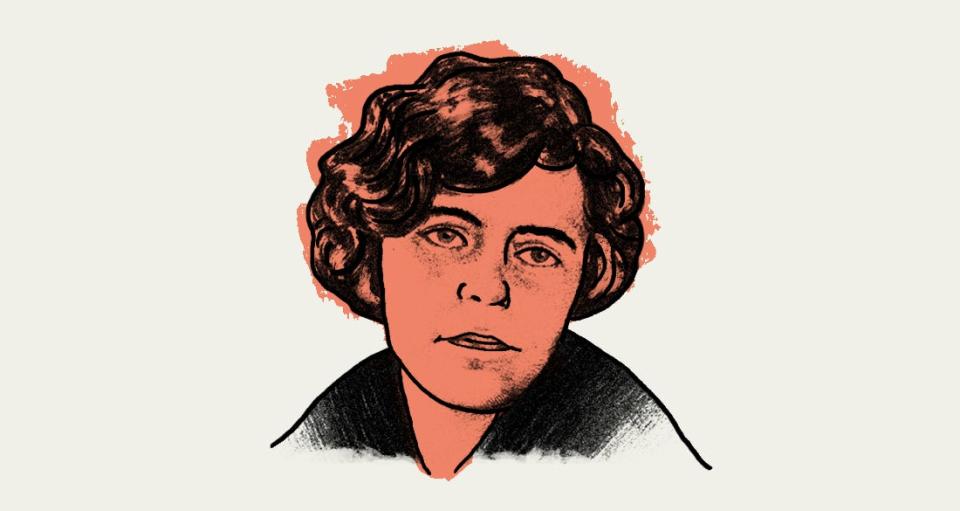
Alice Paul was a leading strategist and campaign organizer for the 19th Amendment and a lifelong activist for white women’s rights. Born to a Quaker family in Mount Laurel that preached gender equality, Paul became enamored with the suffrage movement while studying in England.
She employed militant tactics favored by British suffragettes — picket lines, parades in the streets and other forms of civil disobedience — to demand the vote once she returned home. Paul broke from the National Woman Suffrage Association and formed the more radical National Woman’s Party, staging loud protests in front of the White House to draw attention to the cause. She was harassed, arrested and once force-fed during her incarceration after going on a hunger strike.
But Paul's fight for suffrage excluded women of color. Before a suffrage parade organized by Paul, she told another suffragist that “the participation of negros would have a most disastrous effect” on women's chances of gaining the right to vote, worried that participation by Black women would anger Southern politicians.
After the 19th Amendment became law, Paul pressed on. In 1922, she wrote the Equal Rights Amendment to guarantee legal equality for men and women. The amendment was introduced in every session of Congress from 1923 until it passed in 1972, but remains unratified.
“I never doubted that equal rights was the right direction,” Paul said in 1972. “Most reforms, most problems are complicated. But to me there is nothing complicated about ordinary equality.”
Erna Hoover
Inventor of telephone technology
(1926- )

You can thank Erna Hoover for the phone you’re likely holding right now. Her innovative work at Bell Labs led to the invention of the first telephone central office controlled by a computer — and earned her one of the first software patents in the United States.
The software helped switches handle more calls at peak times. And, as only a woman could, she did some of her work at the hospital while recuperating from the birth of her second daughter. Hoover shattered Bell Labs’ glass ceiling with her invention, becoming the company’s first woman supervisor of a technical department. She worked on surveillance and control programs for the radar used in the Safeguard Anti-Ballistic Missile System as well as other high-level applications until her retirement in 1987.
Hoover is said to have been inspired to go into the field of science by reading about Marie Curie. She graduated from Wellesley College and earned a Ph.D. in philosophy and foundations of mathematics from Yale University. She was born in Irvington in 1926 and was inducted into the National Inventors Hall of Fame in 2008.
Meryl Streep
Oscar-winning actress
(1949- )
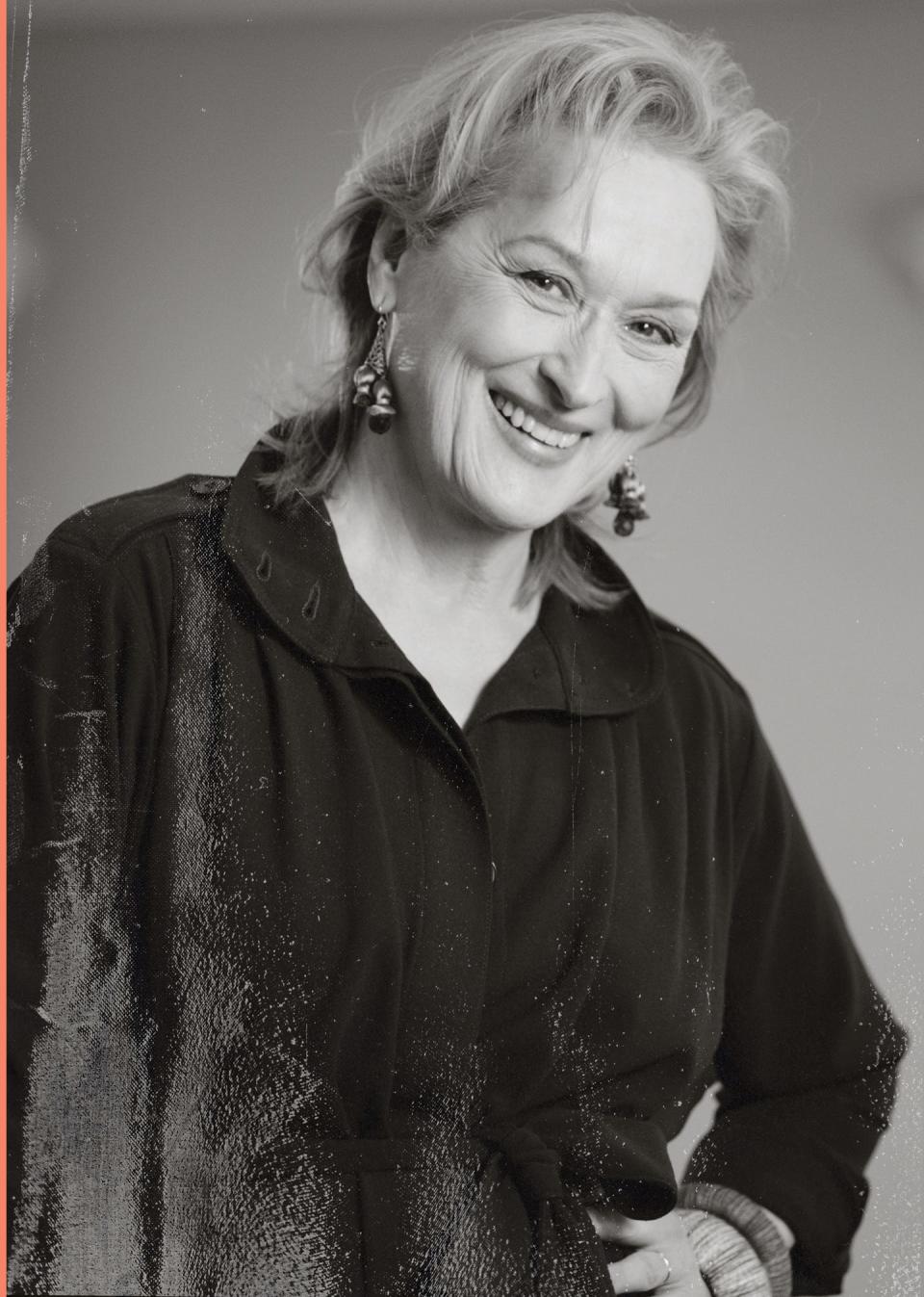
Meryl Streep made her stage debut early in life, performing school productions while growing up in Basking Ridge and Bernardsville. But the actress, often described as the best of her generation, did not consider acting professionally until starring in the play “Miss Julie” at Vassar College.
The role tapped into raw talent and ignited a passion.
“My friends all swooned and said, ‘My God, how did you know how to do that?’,” Streep told The Los Angeles Times in 1990. “And I didn't know how I did that, I just knew that I wanted it. I loved it.”
Streep enrolled in Yale drama school to hone her skills and performed in seven off-Broadway plays in her first year after graduation. Her versatility and knack for accents soon took her to Hollywood. She won her first Oscar in 1980 for “Kramer vs. Kramer”, her second in 1983 for “Sophie's Choice” and her third in 2012 for “The Iron Lady.”
Streep is the most nominated actor in the history of the Academy Awards and was awarded the Presidential Medal of Freedom in 2014.
Whitney Houston
Grammy-winning singer and actress
(1963-2012)
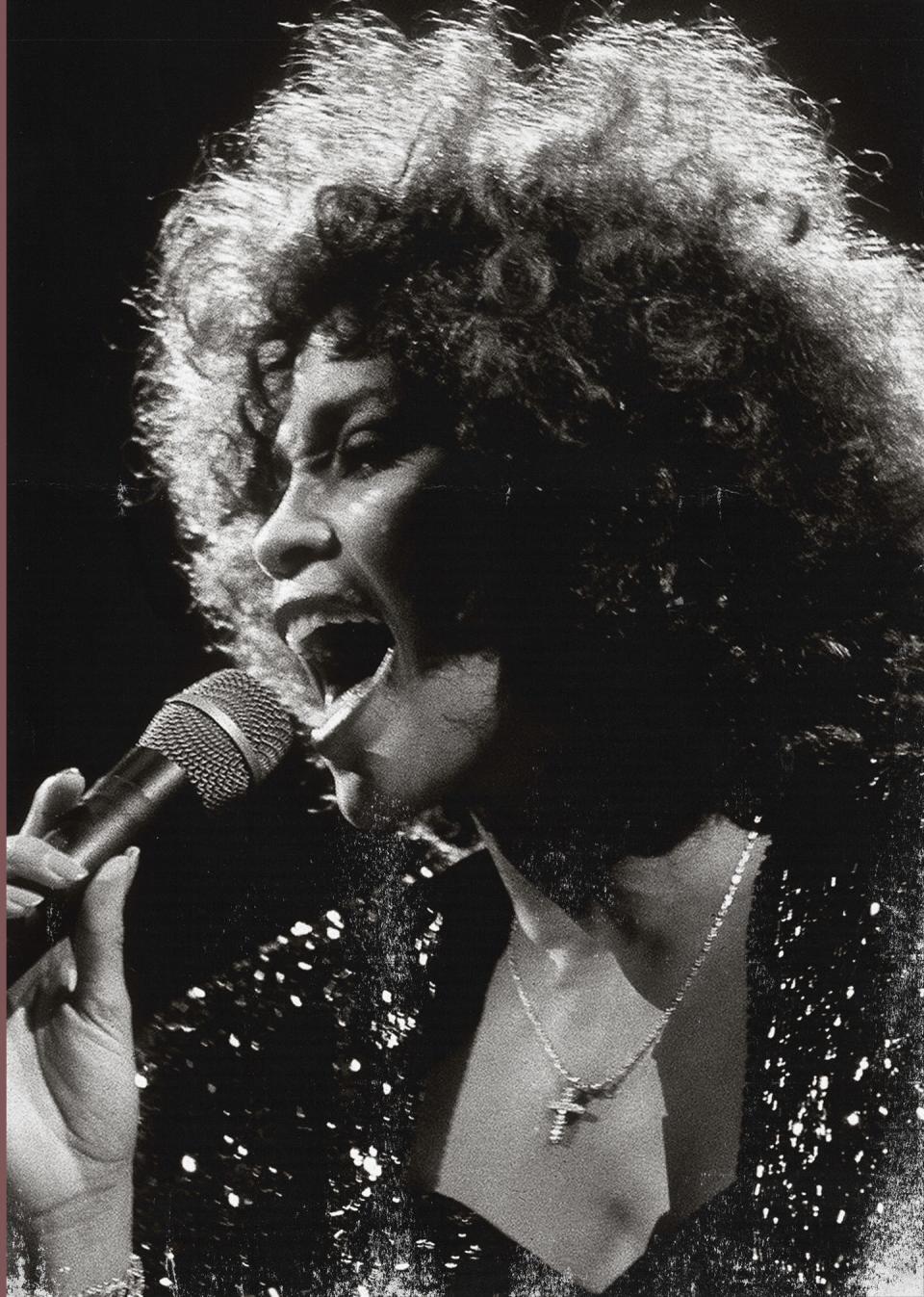
Whitney Houston emerged in the 1980s with a three-octave voice that defined R&B music for a generation. The Newark native grew up singing gospel, but found international fame as a pop star with hits like “I Wanna Dance With Somebody (Who Loves Me), "I'm Every Woman," and a version of Dolly Parton’s “I Will Always Love You" that became her signature song.
She moved into acting for much of the 1990s, starring in films like “The Bodyguard” and “The Preacher’s Wife” while also singing on their soundtracks. Houston sold more than 200 million records worldwide, with her debut album and “The Bodyguard” soundtrack each selling more than 10 million copies in the United States alone. She was nominated for 26 Grammy Awards, winning six. Her soulful rendition of "The Star-Spangled Banner" at the 1991 Super Bowl became instantly iconic.
Houston’s drug use and abusive marriage dominated the later years of her life. Her voice grew weaker, her performances erratic. She accidentally drowned in a hotel bathtub on the day of the 2012 Grammy Awards at only 48 years old.
Millicent Vernon Hammond Fenwick
Politician, diplomat and journalist
(1910-1992)

Millicent Fenwick, known for her wit and charm — she smoked a pipe! — was a politician, diplomat and journalist. A Republican, Fenwick served New Jersey for four terms as a member of the U.S. House of Representatives. She also served many local offices and was appointed the first director of the New Jersey Office of Consumer Affairs in 1972.
Fenwick worked on behalf of civil rights and women’s rights and was an ambassador to the United Nations Agencies for Food & Agriculture. Prior to entering politics, she was a fashion editor in New York City. Her colorful personality is said to have inspired Lacey Davenport, a character in Garry Trudeau's comic strip "Doonesbury."
One of her most biting retorts came after she gave a speech supporting the Equal Rights Amendment and a male legislator said, “I just don't like this amendment. I've always thought of women as kissable, cuddly and smelling good.”
Fenwick didn’t skip a beat.
“That's the way I feel about men, too,” she replied. “I only hope for your sake that you haven't been disappointed as often as I have.”
Queen Latifah
Pioneering feminist rap artist
(1970- )
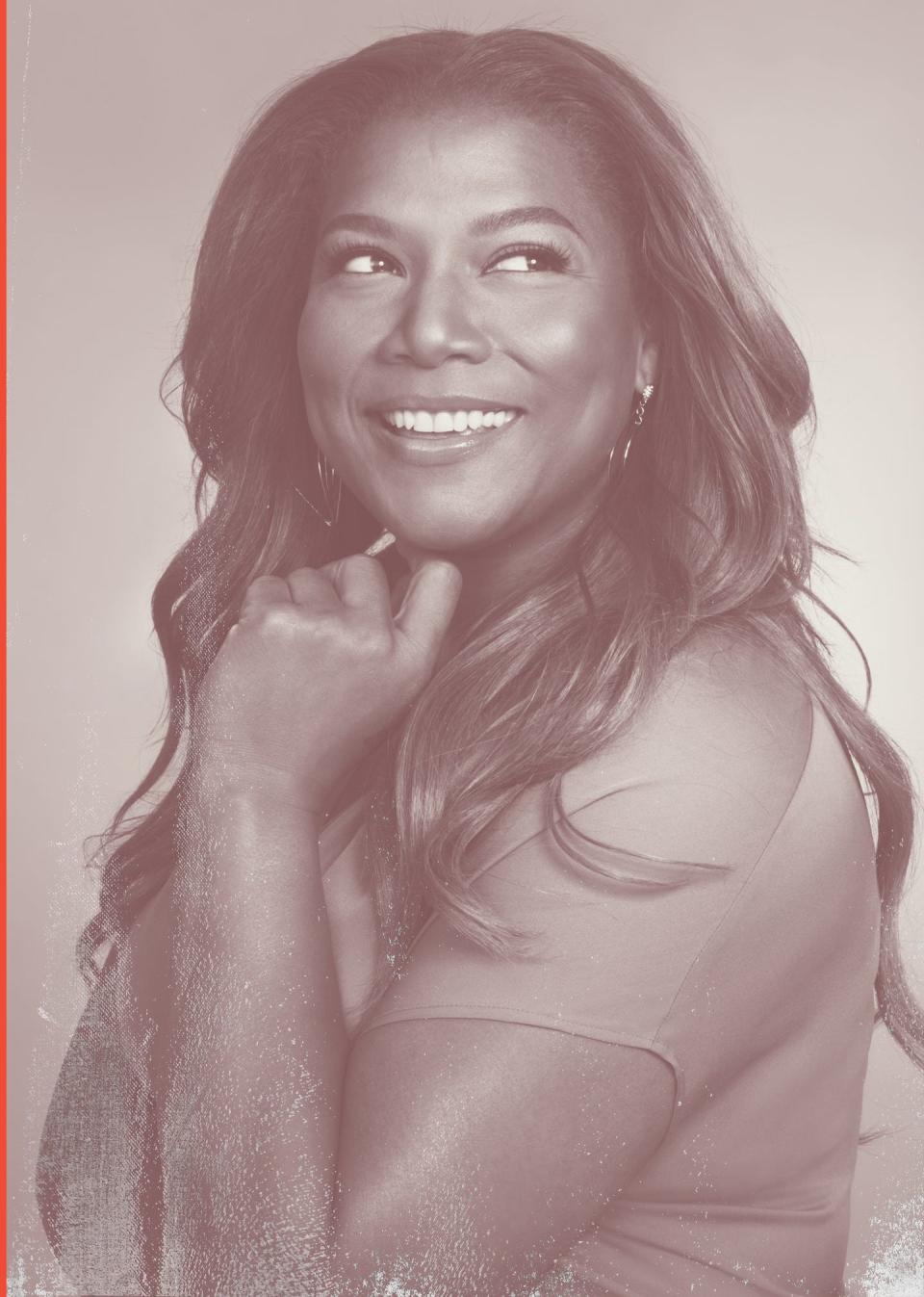
Pioneering feminist rap artist Queen Latifah is a force on many fronts: She's earned a Grammy for solo rap performance; a Golden Globe and three Screen Actors Guild awards for acting; two NAACP Image Awards; and an Academy Award nomination for her portrayal of Mama Morton, the prison matron in “Chicago.”
But Queen Latifah, born Dana Elaine Owens in Newark and raised in hardscrabble East Orange, is above all known for her indomitable spirit and being a voice for women in a pop music industry that, especially pre-1990s, denigrated and undervalued female artists. She took the stage name “Latifah” as a child after learning it meant “delicate" and "very kind” in Arabic. In high school, she added the honorific “Queen,” convinced that all women should feel like queens despite their life circumstances.
“The key is not to rule others but to reign over yourself," she wrote in her 1998 book, "Ladies First: Revelations of a Strong Woman."
In 2006, Queen Latifah became the first hip-hop artist to receive a star on the Hollywood Walk of Fame. Her 1989 debut album, “All Hail the Queen,” is considered one of the best rap albums of all time.
Virginia Apgar
Professor and obstetrical anesthesiologist
(1909-1974)
Anyone who's given birth is familiar with the Apgar Score — the quick assessment that determines whether a newborn needs extra help in its crucial first moments. The obstetrical anesthesiologist who devised it, Virginia Apgar, was the first woman to become a full professor at the Columbia University College of Physicians and Surgeons in 1949.
She grew up in Westfield determined to be a doctor but was dissuaded from pursuing a career in surgery by the male head surgeon at Columbia-Presbyterian Medical Center, who saw many women fail in the same quest. He encouraged Apgar to apply her talents to anesthesiology instead.
Apgar steadfastly believed that “women are liberated from the time they leave the womb” and said being a woman did not significantly limit her medical career, though she privately expressed frustration with wage gaps and other gender inequalities. In later years, she devoted herself to raising funds to fight birth defects.
Apgar was honored in 1994 with a U.S. postage stamp and inducted into the National Women's Hall of Fame in Seneca Falls, New York, the following year.
Judy Blume
Author and advocate against censorship
(1938- )

Judy Blume revolutionized young adult literature with her seminal books about growing up. Her first-person narratives, frankness and empathetic tone in books like “Are You There God? It’s Me, Margaret,’’ “Tales of a Fourth Grade Nothing,’’ and “Blubber” helped guide both girls and boys through puberty while tackling taboo subjects like menstruation, sexuality, bullying and death.
While book critics praised Blume’s willingness to address sensitive issues and young readers admired her candor, many adults found her books inappropriate and campaigned to have them pulled from libraries and banned. Blume was taken aback.
“My feeling in the beginning was, 'wait, this is America… we don't ban books,'” she said in a 2014 interview with The Guardian. “But then they did.”
The experience transformed Blume into an outspoken advocate against censorship. Blume’s books have sold more than 85 million copies worldwide and have been translated into 32 languages. She is the recipient of a National Book Foundation Medal for distinguished contribution to American letters, the Library of Congress' Living Legend award and the E. B White Award from the American Academy of Arts and Letters for her pioneering work.
Ibtihaj Muhammad
Olympic medalist in fencing
(1985- )
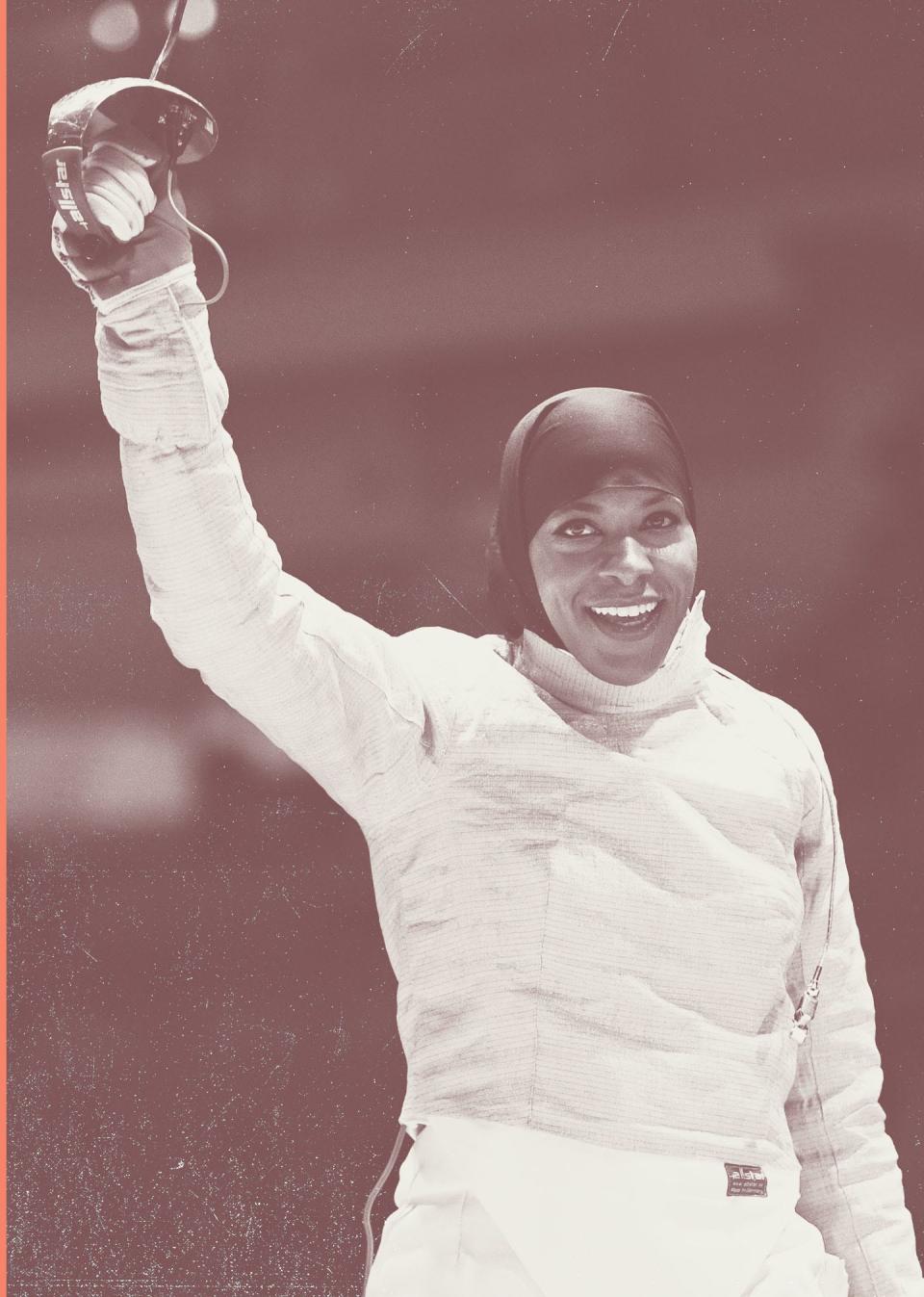
From the moment Ibtihaj Muhammad qualified for the 2016 U.S. Olympic fencing team, she knew she would use her platform to combat stereotypes and promote tolerance.
“I’m hoping to change the image that people may have of Muslim women,” she said. “We come in all different shapes, colors and sizes and we come from different backgrounds and we’re productive members of society.”
Muhammad became the first American athlete to compete in the Olympics in a hijab and the first Muslim-American woman to medal at the Games, winning bronze in the women's team sabre competition.
Her newfound fame landed her on Time Magazine’s 100 Most Influential list and inspired the first hijabi Barbie, modeled in her likeness. Muhammad wrote about her faith in a memoir, “Proud,” and her first children’s book, “The Proudest Blue: A Story of Hijab and Family.”
Muhammad was born and raised in Maplewood, where she was the only African American Muslim at school. She took up fencing at the suggestion of her mother, who wanted to find a sport that would allow her daughter to dress modestly. In 2014, Muhammad launched her own modest clothing company, Louella. She now serves as an ambassador with the U.S. Department of State's Empowering Women and Girls through Sports Initiative.
Patti Smith
Iconic punk poet and musician
(1946- )
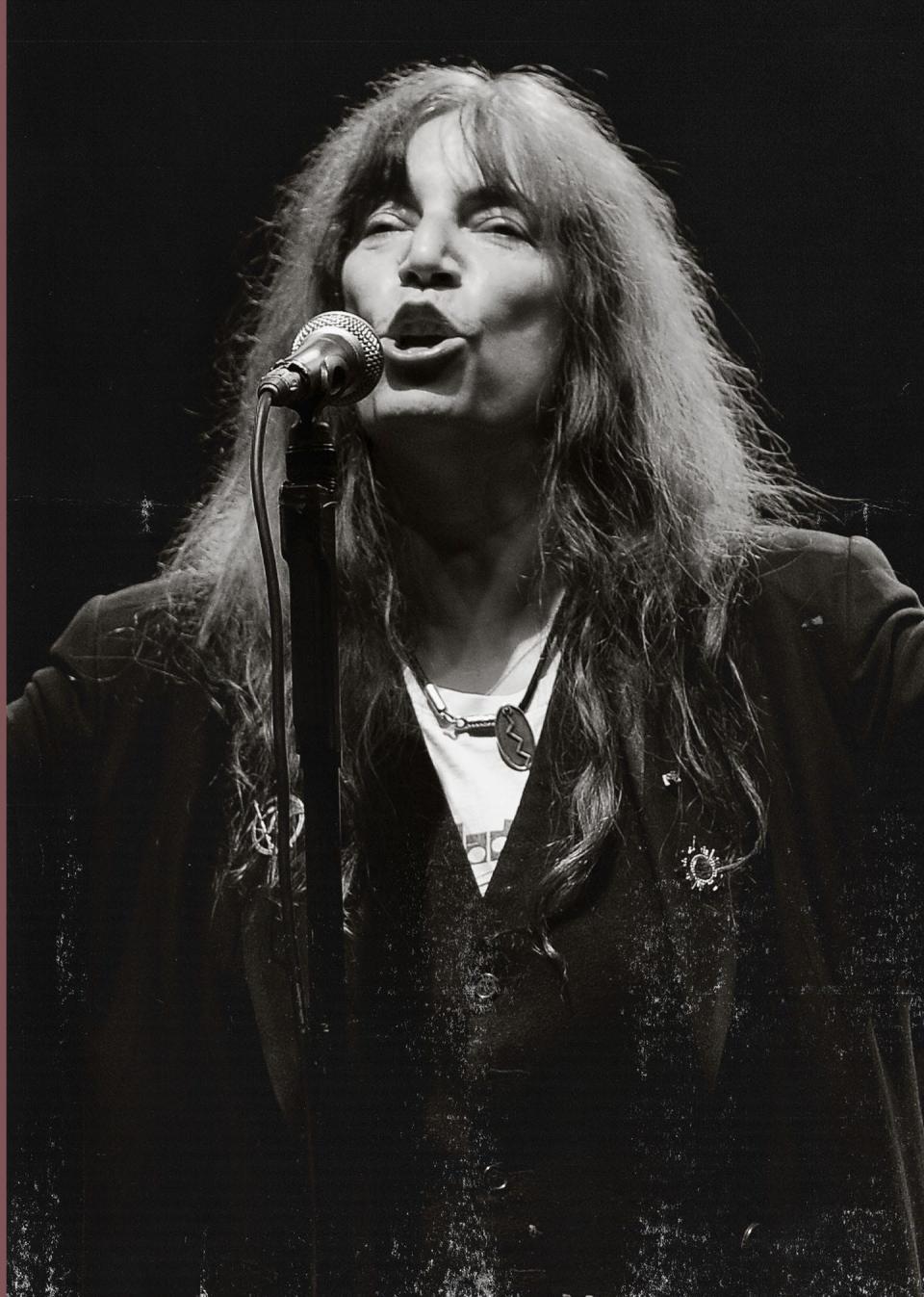
Patti Smith is an iconic punk poet and musician who brought her working-class New Jersey sensibilities to the New York City art world and helped spark a 1970s punk revolution. From her very first album, “Horses,” she staked out her turf as an uncompromising artist who quoted Rimbaud in her lyrics, and wound up in the Rock & Roll Hall of Fame.
Smith moved to New York City after a soul-crushing stint working on a factory assembly line and became a regular at gritty venues like CBGB, where she performed poetry readings that she eventually set to music. Her song “Piss Factory,” inspired by her factory job, is widely considered the first true punk song. “Because the Night,” a song co-written with Bruce Springsteen, remains her biggest hit.
Smith, commonly referred to as the “godmother of punk,” is also an accomplished writer and has released three books of poetry and a series of autobiographical books. She won acclaim, and the National Book Award in 2010, for penning "Just Kids," a memoir of her bohemian life in 1970s Manhattan with artist Robert Mapplethorpe.
More coverage
Women of the Century: They didn’t succeed despite adversity, but often because of it
50 states: Learn about notable women from every state
Who is your Woman of the Century?: Let us know
Recognizing women past and present: See all of our coverage
Sources used in the Women of the Century list project include newspaper articles, state archives, historical websites, encyclopedias and other resources.
This article originally appeared on USA TODAY: Women of the Century New Jersey: List includes musicians and actresses

